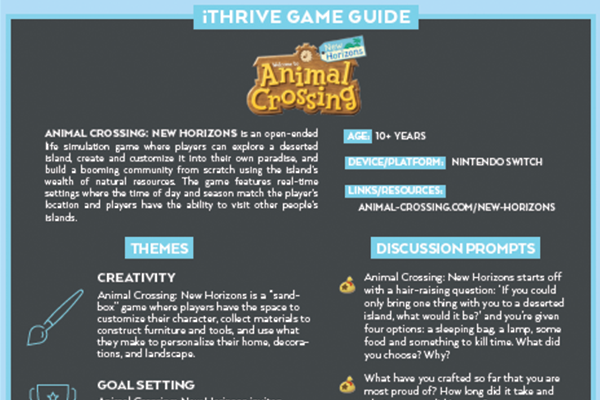Ultimate Guide to Perfecting Your Skills in Simulation Games

How I would learn game dev (If I could start over)
Analyzing the Game: Understand the Mechanics
To excel in simulation games, at first, grasp the mechanics. Knowing how the game works is crucial for advanced play. Understand the basic elements - resources, rules, & objectives.
- Start with tutorials
- Read the game's manual
- Learn controls & commands
Choose a simulation game that suits your interest & level. Pay attention to game modes. Whether it's single-player or multiplayer affects strategies.
Track resource management carefully. This impacts your success. Prioritize time management & efficiency in every task.
Experience is key. The more you play, the better you'll get. Don't be afraid to make mistakes. They teach valuable lessons. As I immersed myself in simulation games, my understanding grew.
Practice Regularly: Enhance Your Skills
Simulation games require consistent practice. Allocate specific times daily or weekly. Avoid long breaks to maintain skill levels.
| Practice Schedule | Time |
|---|---|
| Morning | 30 mins |
| Evening | 1 hour |
Set achievable goals for each session. These can be small tasks like resource collection. Or larger goals like mission completion.
Engage in challenging scenarios. This pushes your limits & develops flexibility. Review past gameplay to spot weaknesses.
Don't just play; analyze. Every session should bring insights into strategies, strengths, & areas for improvement.
Join Online Communities: Learn from Others
Online forums are treasure troves of tips. They offer a variety of perspectives. Join platforms related to your simulation game.
- Reddit communities
- Facebook groups
- Discord servers
Share your experiences & ask for advice. These communities often have veterans willing to help. Be active & contribute to discussions.
Participate in online multiplayer matches. This exposes you to different gameplay styles & techniques. Simulation games often involve complex strategies you can learn from others.
Tom says, "Open dialogue with peers improves game understanding."
Utilize In-Game Features: Advanced Techniques
In-game tools are at your disposal. These tools enhance gameplay. Utilize game mechanics for strategic advantage. For instance, shortcuts & custom key bindings can streamline actions.
- Modify settings for comfort
- Create macros if allowed
- Adjust game pace for strategy
Explore options in-depth. Practice using features like map overlays or help menus. These provide vital insights during gameplay.
Understanding in-game economics is often key. Learn to manage resources efficiently under different conditions. This brings your skills to a new level.
Watch Tutorials & Streams: Observe the Experts
Watching others play can elevate your game. Platforms like YouTube & Twitch are excellent resources. Observe how experts tackle challenges in simulation games.
- Follow experienced broadcasters
- Take notes on their tactics
- Ask questions during streams
Understand their decisions in various scenarios. This insight will enrich your gameplay. Many streamers interact with viewers, offering real-time advice.
Use these sessions to update your strategies. Apply learned techniques & watch your gameplay improve dramatically.
Experiment & Innovate: Forge Your Path
Innovation separates average players from great ones. Don't rely solely on existing strategies. Experiment with game settings & approaches.
| Experiment Type | Benefit |
|---|---|
| Different strategies | Better adaptability |
| Alternative resources | Enhanced efficiency |
Try less conventional choices. Sometimes, breaking away from tried-&-tested methods offers fresh perspectives.
Embrace failures as learning curves. Every unsuccessful attempt is a step toward improvement.
Mindset & Adaptability: Mental Preparation
Simulation games often test patience & decision-making. Maintain a positive mindset & adapt to change. Be ready for sudden shifts in scenarios.
- Stay calm under pressure
- Adjust strategies when needed
- Focus on long-term goals
Accept that plans might not work initially. Flexibility is your greatest asset. This approach will significantly improve your resilience in the game.
Reflect on past experiences. Think about how you've adapted previously. Apply lessons from these instances to current gameplay.
Tracking Progress: Reevaluate Strategies
Monitor & assess your growth regularly. Keep records of your gameplay. Track successes, failures, & everything in-between.
- Use screenshots or videos
- Create a performance journal
- Log important lessons
Identify patterns in your gameplay. Adjust your strategies accordingly. This reflection is crucial in refining your skills.
Compare past & present performances. Revel in progress made. This realization boosts motivation & commitment to improvement.

What are simulation games?
Simulation games are a genre of video games designed to closely simulate real-world activities or processes, often providing a virtual environment where players can practice decision-making & management skills. These games range from life simulators like The Sims to city-building games like SimCity & flight simulators.
How can I get better at simulation games?
To improve in simulation games, start by thoroughly understanding the game mechanics & objectives. Practice consistently, learn from mistakes, & experiment with different strategies. Watching tutorials, reading guides, & joining forums or communities can also provide valuable insights & tips.
What skills can be improved by playing simulation games?
Simulation games can enhance various skills, including strategic thinking, problem-solving, management, & decision-making abilities. They can also improve hand-eye coordination, resource management, & sometimes even practical skills relevant to the real world, depending on the game's context.
Why are simulation games popular?
Simulation games are popular because they offer immersive & engaging environments that mimic real-world scenarios. Players enjoy the freedom to explore & experiment, make choices, & see the consequences of their decisions, all while having a safe space to fail & learn from their mistakes.
What's the difference between a simulation game & a strategy game?
While simulation & strategy games often overlap, simulation games focus on mirroring real-life processes & environments, allowing players to control & manage various aspects of the simulation. In contrast, strategy games usually emphasize tactical planning & decision-making under certain rules & conditions, often in a more competitive environment.



